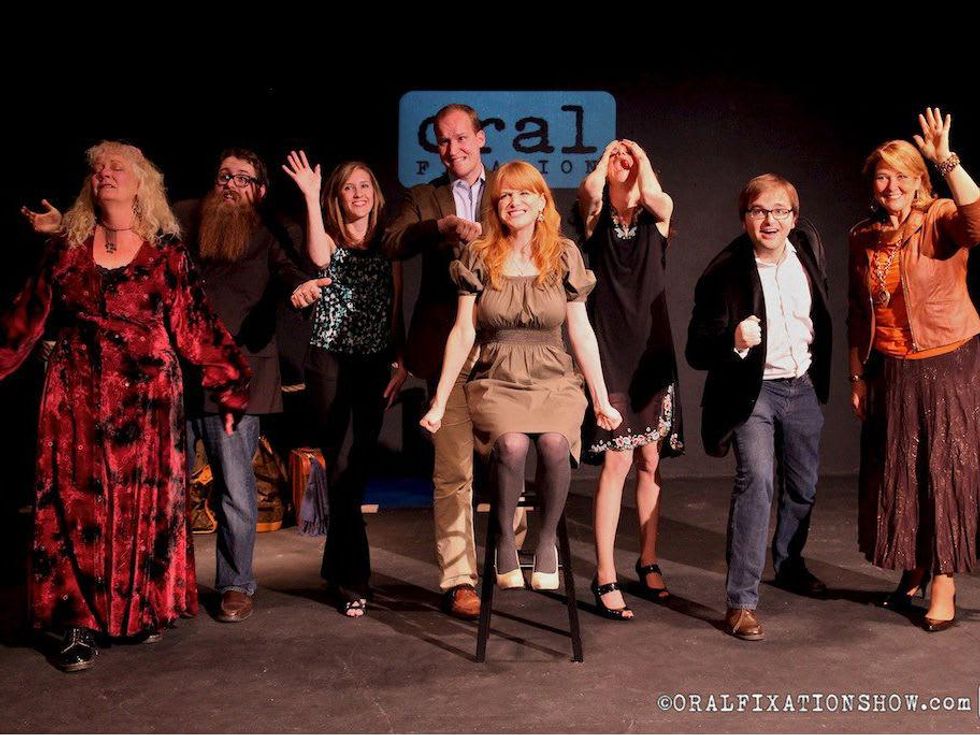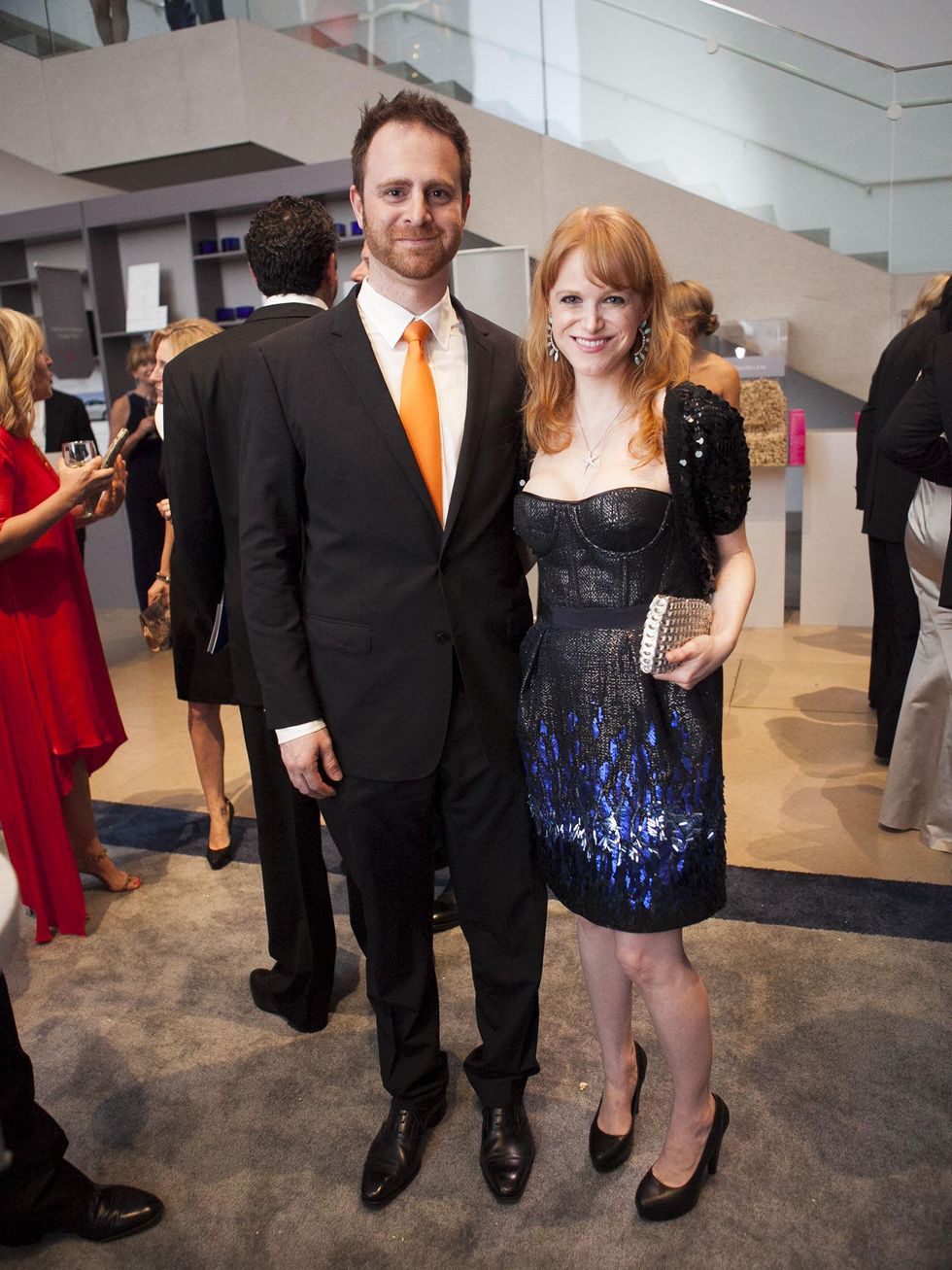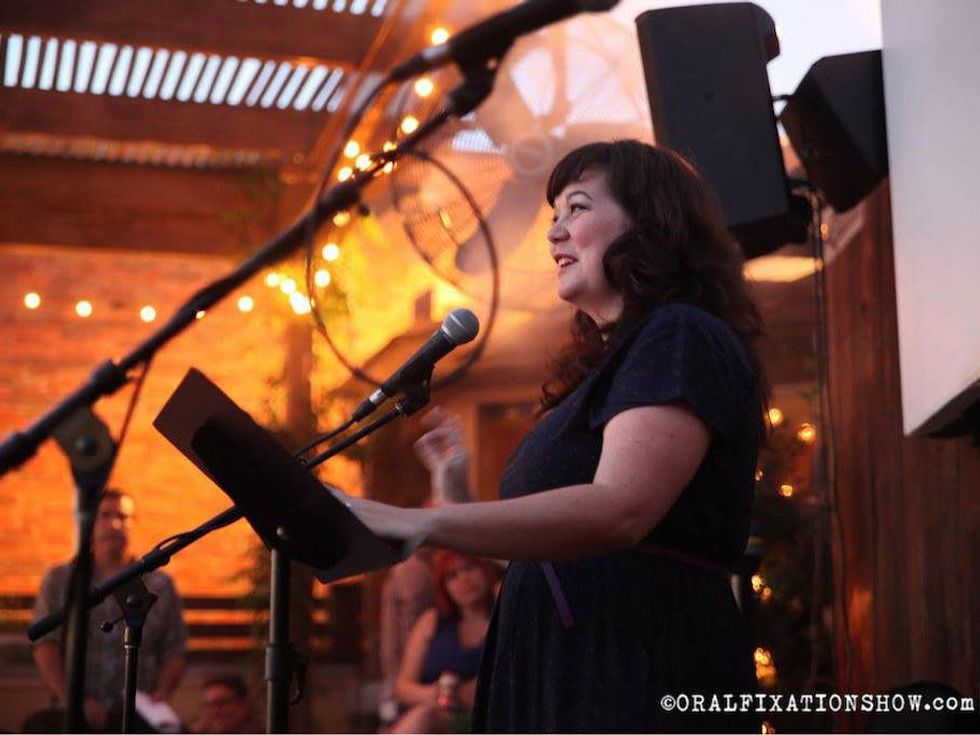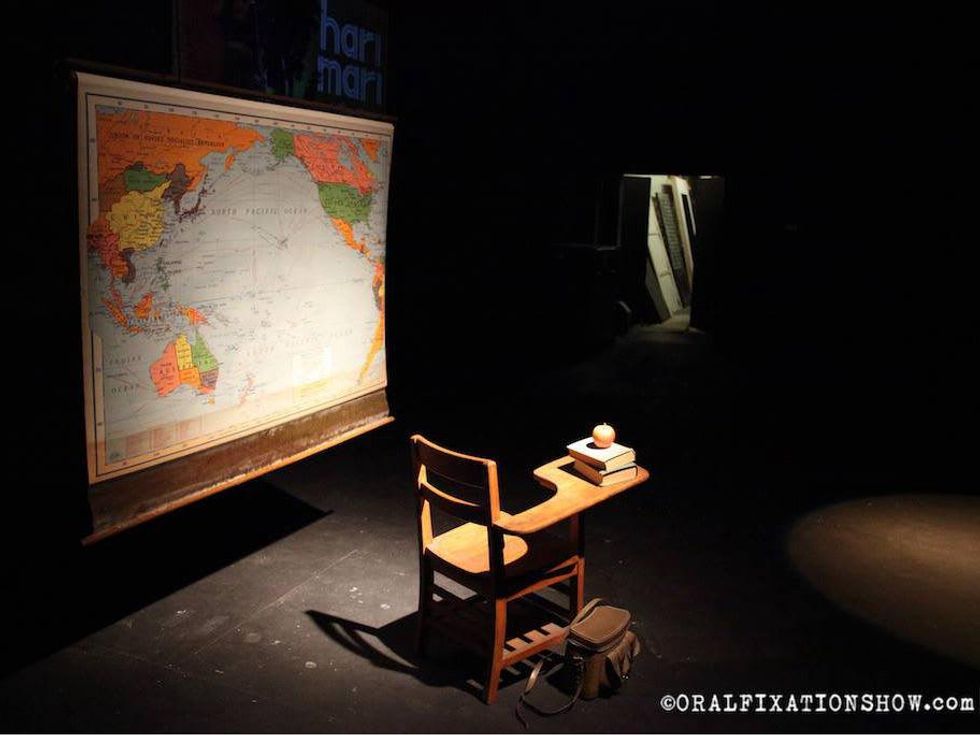TEDxSMU Teasers
TEDxSMU speaker Nicole Stewart on the healing power of storytelling
When you start a conversation with a natural storyteller like Nicole Stewart, it's hard to stop. Her questions draw you in, even when you're the one who is theoretically doing the interviewing. "I believe as human beings we all have a need to express ourselves. It's a need like food or water or shelter," Stewart says.
Stewart fell in love with onstage storytelling after she was dropped by her acting agent in Los Angeles. She found a monthly storytelling group and eventually brought the concept back to her hometown of Dallas. Stewart and her husband, Anton Schlesinger, founded Oral Fixation in 2011.
The true-life series features seven people from all walks of life sharing eight-minute stories on idiomatic themes. The show outgrew its first home at the McKinney Avenue Contemporary and is now entertaining audiences at Hamon Hall in the Winspear Opera House at AT&T Performing Arts Center.
As founder, Stewart isn't only talking the talk; she's walking the walk. She takes the stage along with six other speakers on October 28 to offer her take on "bun in the oven."
"When you hide something, it becomes this deep, dark scary thing," Stewart says. "But when you put it out in the open, a lot of times you find a way to laugh at it."
"When someone is brave enough to share their story, it's healing for them and for the audience," Stewart says.
The former actress and current Pilates instructor discusses her own path of transformation through storytelling at TEDxSMU on October 19. "When you go to the theater, you know it's an actor on a stage reading the words of a play writer, and that can be entertaining and moving," Stewart says. "But a real person's story is totally different. It is so much more intimate."
We recently sat down with Stewart to talk about Oral Fixation (now in its third season), the trouble with memory and going with the flow.
CultureMap Dallas: What's the biggest challenge of storytelling?
Nicole Stewart: We all think of our past in a certain frame, and we'll often tell people about our past the same way again and again. But that doesn't mean it's the truest representation of what happened. I ask all of our speakers probative questions during the editing process.
It's not me getting in there with a red pen and changing things. Every word is written by the person who is telling the story, but the editing process is really about shaping the story and fleshing it out.
CM: Why focus the stories around an idiom?
NS: It gives all the stories a connection, and yet idioms are also open to interpretation. It's fun for the audience to think about how each story fits in with the theme. It's like a puzzle.
CM: Other than the theme, what else makes Oral Fixation different from an open mic night?
NS: I edit all the stories because I want to guarantee the audience there will be a consistently high level of writing. Our speakers don't go off on tangents. Every word is planned. There is this exchange of energy with the audience, because it is obvious the speakers have put a lot into it, so the audience gets a lot out of it as well.
CM: Why do you think storytelling is cathartic?
NS: When we internalize our pain or trauma or issues, it causes a feeling of isolation. It can also have physical repercussions. If we can take the internal and make it external, then we get a lot of that pain and sadness out of our system. But that doesn't mean that every story is sad.
"You are never truly alone. There is always someone else out there who can relate to what you are going through."
I remember working on a story with a woman, and we both thought it was a dark, sad story. She even cried the first time she rehearsed it. But when she told it on stage, the audience laughed. Neither of us had realized it was a comedy until that moment. When you hide something, it becomes this deep, dark scary thing. But when you put it out in the open, a lot of times you find a way to laugh at it.
CM: What's something most people don't know about you?
NS: Stephen Colbert kissed me at the Emmys. My sister and her husband work on the Colbert Report, so my husband and I got to go to the Emmys this year as part of their entourage. When I met Colbert, he had an Emmy in each hand. Instead of shaking hands, he leaned over and kissed me on both my cheeks.
CM: Describe your perfect day.
NS: Walking my dog along the lake, having a nice brunch and then just enjoying quiet time with my husband, maybe catching up on our favorite TV shows. And it's gotta be a Sunday. I love Sundays.
CM: What's one of your favorite Oral Fixation stories?
NS: I can't pick just one, but I'll narrow it down to two. On our "old school" theme, a woman talked about growing up in Bangladesh and not being allowed to go to school because she was a girl. She loved books and would scribble wavy lines in notebooks to try to teach herself how to write.
She finally moved to America when she was 10 years old and learned how to read in the fifth grade. She went on to do some pretty great things. She actually got into Harvard. It's such a beautiful story of triumph. We interact with so many immigrants on a daily basis, but we don't know what their life was like before America. We don't feel like we can ask.
My other favorite story was on the theme "one night stand." A woman told her whole life story through the lens of an antique nightstand that was by her bedside for 30 years. She had a pretty unusual life, so it lent itself to an interesting exploration of the idiom. She went through cancer, a leg amputation, an addiction to pills and was sexually assaulted — all in the shadow of that nightstand. After the assault, she sold it at a garage sale.
CM: What are your words to live by?
NS: You are never truly alone. There is always someone else out there who can relate to what you are going through. Also, my life mantra lately has been "go with the flow." When I started Oral Fixation, I signed the contract with the McKinney Avenue Contemporary without even having a name for the show.
CM: It's a pretty catchy one. How'd you come up with the name?
NS: That credit goes to my mentor, Gail Sachson of Ask Me About Art. She came up with it, and Anton and I immediately knew it was a hit. It has just the right amount of sex appeal and intrigue.
CM: What's next for Oral Fixation?
NS: We are going to kill it AT&T Performing Arts Center, our new home, and get more people out to the shows and submitting their own stories. We're also rolling out a membership program and season passes.
---
A limited number of tickets are still available for TEDxSMU, which will be live streamed on October 19 from 9 am to 6 pm at TEDxSMU.org.
Tickets for the October 28 Oral Fixation show "Bun in the Oven," at Hamon Hall in the Winspear Opera House, can be purchased here.




